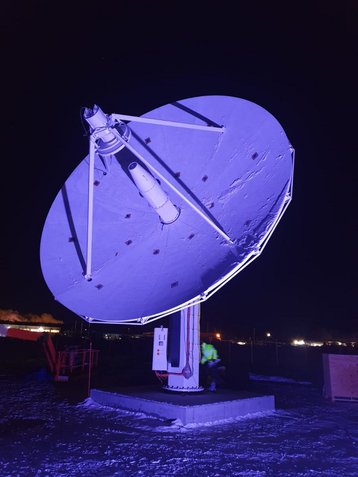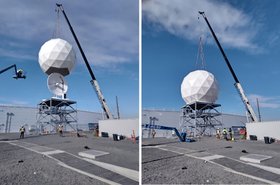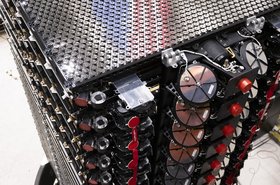Viasat Inc. this week announced an agreement with Arctic Space Technologies to establish and host Viasat's first high-latitude Real-Time Earth (RTE) facility in Öjebyn, Sweden.
The new site is Viasat's first RTE site colocated at a data center, which it said allows for Edge compute capabilities for real-time processing, analysis, and optimization. Arctic Space Technologies operates a ground station facility next to and connected to a data center operated by EcoDataCenter.
RTE is the company’s new Ground-Station-as-a-Service (GSaaS) offering, providing satellite operators and customers time slots on shared antennae, rather than requiring dedicated ground station infrastructure.
"Our relationship with Arctic Space Technologies plays an integral role in the expansion of our global RTE footprint and our ability to provide increased coverage in the critical polar geography," said John Williams, vice president, Real-Time Earth at Viasat. "The new Swedish site will provide our RTE commercial and government customers with virtual access to their own 7.3m S/X/Ka-band antenna systems—at an ideal polar latitude—with secure backhaul communications and software-defined radios configured specifically for every satellite pass."
Viasate said opening a new RTE facility means the company can provide polar coverage for high-speed data capabilities. Viasat's first Swedish RTE ground station is planned to be operational by April 2022.
The new RTE facility in the city of Piteå will host a total of four Viasat full-motion 7.3-meter S/X/Ka-band antennas and associated infrastructure. Customer satellites will be able to connect to Viasat's RTE ground station up to nine times per day.
The new Sweden site is Viasat's 6th RTE facility globally, and its second in Europe following one in Guildford, UK, installed in 2018. Currently, Viasat's RTE network operates on five continents, with sites in the US, UK, Australia, Argentina, Australia, and Ghana. The company told SpaceNews antennas in South Africa and northern Japan are planned.
“After those two antennas are deployed by this summer, then we have plans to go to southern Japan, Malaysia, Canada [and] maybe second antennas at some of the current sites,” said Williams.
Ground stations colocated with data centers
Sandra Nilsson, co-founder and COO of Arctic Space Technologies, said: "We're proud to partner with Viasat on bringing their Real-Time Earth solutions to Sweden. Arctic Space Technologies is at the forefront of closing the gap between data centers and ground stations, enabling Edge-based satellite communications with our reliable, scalable, and sustainable platform."
AST partnered with EcoDataCenter in June 2020 to locate and connect ground station infrastructure to the latter’s Piteå facilities. The data centers – acquired as part of a merger with Fortlax in 2019 – comprise two hydroelectric-powered buildings and a second EMP-protected site in the area. The company’s footprint in the city totals 3,250 sqm (35,000 sq ft) and 4.5MW.
The Swedish ground station facility was built in 2021. AST said the required civil works were completed within only three weeks during the summer and antenna installation was performed within only two weeks during January 2022. Infostellar also installed an antenna on the site last year.
“The data center is adjacent to the antenna site,” Nilsson said. “This gives us the opportunity to reduce latency times for data transfer with a dedicated fiber connection, and therefore enabling extremely fast and secure data operations. We are very happy to bring this to the market, and specifically to Viasat.”
Benjamin Fischer, CEO of Arctic Space Technologies, added: “Together with our data center partner, this facility is essentially a data hub able to acquire and process tremendous amounts of data from satellites flying over Europe, in real-time.”
EcoDataCenter is a joint venture between local energy company Falu Energi & Vatten and data center operator EcoDC AB. Its first project was announced in 2015.








